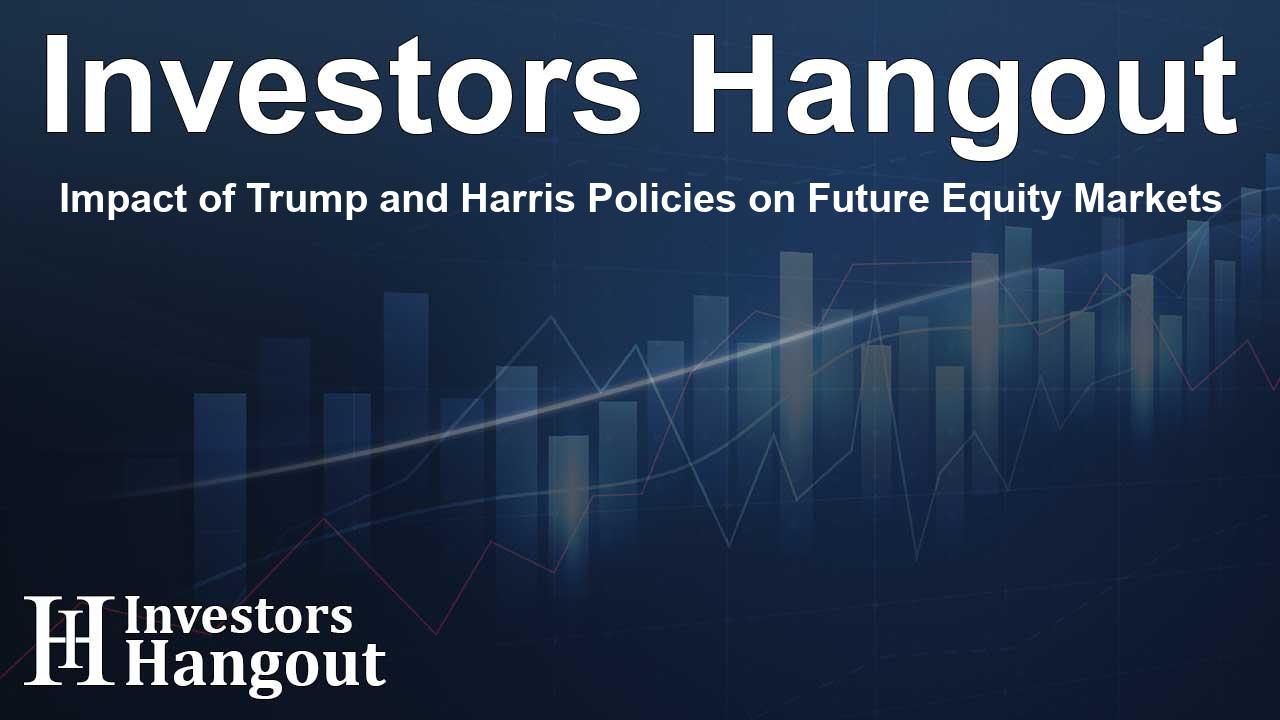Impact of Trump and Harris Policies on Future Equity Markets

Understanding the Potential Impact of Political Platforms on the Market
The financial landscape can be considerably influenced by political scenarios, particularly with upcoming elections posing both opportunities and challenges. As analysts observe, the platforms of prominent candidates Donald Trump and Kamala Harris are expected to affect U.S. equities, especially under particular election outcomes.
Projected Outcomes from Different Election Scenarios
In a recent analysis, strategists projected that if Trump were to achieve victory alongside Republican control of Congress, known as a "sweep," the S&P 500 could face a decline in fair value ranging from 0% to 4%. This scenario can be unsettling for investors looking for stability in their portfolios.
Comparison of Candidate Policies
On the other hand, a similar sweep by Harris and the Democrats could result in a more significant drop of approximately 3% to 6% for the index. This divergence showcases the potential impact differing political ideologies can have on the market.
Corporate Tax Policies and Their Implications
One significant area where the candidates diverge is tax policy. Harris's plan to increase corporate tax rates from 21% to 28% could create downward pressure on corporate earnings. This tax hike is predicted to lead to a 6% reduction in S&P 500 earnings per share by 2026. Consequently, this downward trajectory can substantially influence stock prices, making Harris's economic strategies a point of concern for many investors.
Conversely, Trump's proposed extension of the Tax Cuts and Jobs Act seeks to lower corporate taxes from 21% to 15%. This move aims to uphold the existing corporate tax structure, potentially attracting investments and stabilizing the market, despite concerns that it could increase the federal deficit.
Deficit Concerns Associated with Candidate Strategies
Both candidates' plans could exacerbate deficit issues. Trump's continuation of the TCJA along with potential tariffs could add an estimated $4-5 trillion to the national deficit over the next ten years. Meanwhile, Harris's approach, which includes expansive social programs and tax incentives, can contribute an approximate $1.5-2 trillion deficit impact. Observers are closely monitoring how these fiscal strategies may alter the financial stability of the U.S.
Tariffs and Their Effects on Market Conditions
When it comes to tariffs, Trump's proposals include a 10% tariff on all imports and a staggering 60% tariff on Chinese products. Such measures could escalate costs for U.S. companies, leading to higher consumer prices and diminished profit margins. This could deter international trade, further complicating market dynamics.
Impact of Legislative Outcomes on Market Trends
Citi analysts noted that a scenario with a divided Congress may reduce risks to the S&P 500. Legislative gridlock tends to limit significant policy changes, allowing markets to adjust without severe disruptions.
As strategic positions solidify following the elections, potential adjustments in federal spending may emerge as a significant discussion point. While fiscal stimulus appears inevitable in the near term, its direct effect on market fundamentals remains ambiguous.
The Bigger Picture: Economic Factors Beyond Politics
Even with the political landscape posing hurdles for market performance, broader economic factors—such as interest rates and Federal Reserve policies—will continue to play a vital role in driving equity performance. Emerging trends in technology and innovations, including advancements in AI, will also contribute to this evolving narrative.
In summary, while the platforms of both Trump and Harris introduce possible headwinds for the market, investors should prepare for potential "tail risks" associated with electoral outcomes, keeping a vigilant eye on both domestic and global economic patterns.
Frequently Asked Questions
What are the expected impacts of Trump’s and Harris’s policies on the S&P 500?
Both candidates’ policies could lead to negative impacts on the S&P 500, with projections indicating a 0%-4% or 3%-6% decline depending on the election outcome.
How do the candidates’ tax policies differ?
Harris aims to increase corporate taxes significantly, while Trump plans to lower them, affecting corporate earnings and stock prices differently.
What are the implications of a divided Congress?
A divided Congress may limit legislative changes, potentially reducing risks to the S&P 500 and providing stability to the market.
How might deficit concerns affect market performance?
The platforms of both candidates may expand the deficit, with Trump’s plans adding more than Harris’s, which could lead to investor apprehension.
What factors will primarily influence equity markets moving forward?
Broad economic factors, such as interest rates and innovations in technology, will continue to drive equity performance beyond the political landscape.
About The Author
Contact Dominic Sanders privately here. Or send an email with ATTN: Dominic Sanders as the subject to contact@investorshangout.com.
About Investors Hangout
Investors Hangout is a leading online stock forum for financial discussion and learning, offering a wide range of free tools and resources. It draws in traders of all levels, who exchange market knowledge, investigate trading tactics, and keep an eye on industry developments in real time. Featuring financial articles, stock message boards, quotes, charts, company profiles, and live news updates. Through cooperative learning and a wealth of informational resources, it helps users from novices creating their first portfolios to experts honing their techniques. Join Investors Hangout today: https://investorshangout.com/
The content of this article is based on factual, publicly available information and does not represent legal, financial, or investment advice. Investors Hangout does not offer financial advice, and the author is not a licensed financial advisor. Consult a qualified advisor before making any financial or investment decisions based on this article. This article should not be considered advice to purchase, sell, or hold any securities or other investments. If any of the material provided here is inaccurate, please contact us for corrections.
